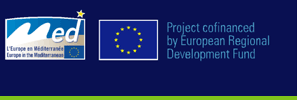|
|

Municipality of Prato
Prato, with a total of 185,091 inhabitants, is the second town of the Tuscany and the third one of the central Italy (after Rome and Florence). It is located in the heart of the Region, on the central board of a metropolitan area of a million and 200 thousand inhabitants, in a strategic position with respect to the infrastructures of the area. The industrial district of Prato, located in a territory covering the whole Province and some neighbouring areas, is one of the biggest Italian industrial districts and an important centre at global level for the production of textiles and wool, in particular: textiles for the clothing industry, textile products for the furnishing, knitting yarns, nonwoven fabrics and technical textiles for industrial purposes, knitted fabrics, clothing and machines for the textile industry. In addition to the traditional specialization in the textile, the clothing sector has progressively increased in the district, so much so that Prato by now is known also as “fashion district”. The industrial vocation of the - although the recent reduction of the weight of the manufacturing (in 1981-2001 the number of textile companies is reduced by almost 60% and by 35% employment in the sector) - is still dominating: with almost 7,200 companies employing over 40,000 workers in the production of over 70,000 new items and approximately 350 million meters of fabric for clothing, furnishings and technical uses, Prato is currently one of the most important textile manufacturing areas in Europe. The Municipality of Prato in the last years has developed an intense activity in Europe, participating in calls for EU funds, directly managing both projects funded by the ERDF and international cooperation projects and participating in European networks. In particular it has been actively involved in the coordination and management of the Interreg III C South RFO DISTRICT, has implemented as Lead partner the Med-Pact PAMLED and as coordinator the TWINTEX MUSEUMS project. This initiative together with the participation in the ACTE network (European Association of Textile Communities), whose the Municipality is in charge of the Executive Secretariat for the 2007/2009, have fostered the collaboration among textile cities, museums and enterprises to enhance their heritage and facilitate the transition of territorial systems towards the knowledge economy.
|

